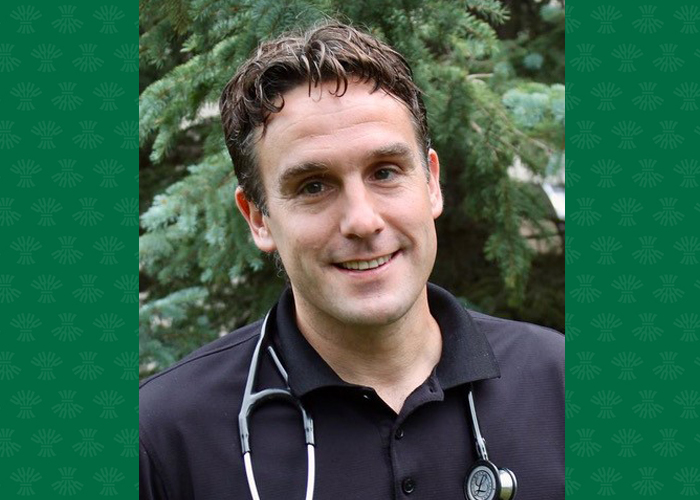
Treating diabetes with black bag medicine: Dr. Stu Skinner
Without a car, without childcare, without a grocery store, a pharmacy, or a place to get blood work done, how does a person with diabetes in rural Saskatchewan keep their disease in check?
By RESEARCHERS UNDER THE SCOPEListen to all episodes of Researchers Under the Scope podcast.
Subscribe to the podcast on Spotify or Apple Podcasts
Those are the questions Dr. Stu Skinner and his Wellness Wheel team members face each day, as they treat Cree and Saulteaux patients on the Day Star, George Gordon, Kawacatoose and Muskowekwan First Nations in south-eastern Saskatchewan.
"We see a lot of patients with diabetic foot infections," said Skinner, a University of Saskatchewan-trained physician who specializes in infectious diseases and internal medicine. The disease works insidiously, often showing no symptoms as it causes nerve damage to a patient’s body.
Some of Skinner's patients typically walk 5 km or more in a day. Some don't realize their feet are injured until gangrene appears.
In this episode, Skinner describes the complications of uncontrolled diabetes, which can include heart attacks, strokes, kidney failure, vision loss, and amputations.
Facing tough financial choices, discrimination and long travel times, he said a number of his patients don't seek health care until it's too late.
"I always joke that we need to go back to the old doctor model with the black bag where you go to people's houses and you treat them there because that's what works," Skinner said.
Leaders from the four First Nations of the Touchwood Agency Tribal Council told Skinner diabetes is a major concern. They want to reduce the number of diabetes-related amputations for members of their communities.
To build trust and to help patients better control their diabetes, Skinner's team will spend the next year recruiting ‘peer champions’ in the area who also have diabetes — people who better understand what day-to-day life as a diabetic is like.
“People who have that lived experience have a lot to contribute and really are key,” said Susanne Nikolai, nurse lead and Wellness Wheel’s clinical coordinator.
Nikolai said working with Skinner and his team has been “absolutely the best nursing that I've done in my almost 30 years as a registered nurse."
This year, the Saskatchewan Health Research Foundation approved a $7,500 grant for 'Culturally Responsive “Diabetes 101” Training and Knowledge Mobilization Among Indigenous Peers Living with Diabetes in Regina Urban Hub and Indigenous Communities'.
Skinner plans to use the money to build trust with his patients, to connect them with diabetic peers in their community, and to find out what's stopping them from getting the care they need.
"Many of our patients don't have transportation or they need childcare," said Skinner.
"If I, as a physician, mail out a letter for an appointment to someone, but they can only check their mailbox maybe once every three to four months, how are they ever going to know about the appointments, even if they could make it there?"
In this episode, hear why breaking down those barriers has become a passion for Skinner, Nikolai and the Wellness Wheel team.
